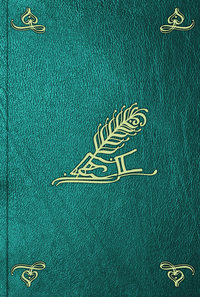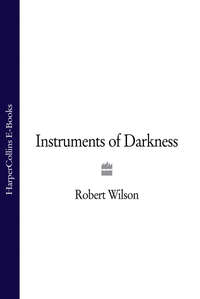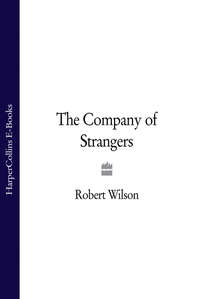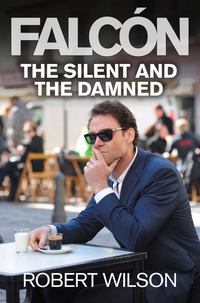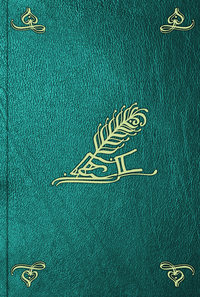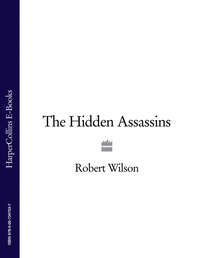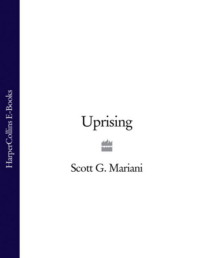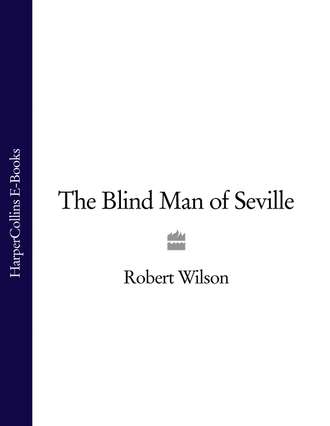
Полная версия
The Blind Man of Seville
There was no argument from Calderón.
They were driving back to the Jefatura on Blas Infante. Ramírez was at the wheel. As they crossed the river to the Plaza de Cuba, the advertisement for Cruzcampo beer triggered a sudden parched quality to the Inspector’s throat. He wouldn’t mind one, he thought, but not with Falcón. He wanted to drink with somebody more convivial than Falcón.
What do you think, Inspector Jefe?’ he asked, jerking Falcón out of his reflection on how awkward his first meeting with the young judge had been.
‘I think more or less what I said to Juez Calderón.’
‘No, no, I don’t think so,’ said Ramírez, tapping the steering wheel. ‘I know you, Inspector Jefe.’
That turned Falcón in his seat. The idea that Ramírez had the first idea on how his mind worked was nearly laughable to him.
‘Tell me, Inspector,’ he said.
‘You were telling him things while you were thinking something else,’ replied Ramírez. ‘I mean, you know that going through that address book is going to be as big a waste of time as, say, interviewing those kids that Sra Jiménez fired.’
‘I don’t know that,’ said Falcón. ‘And you know that the basics have to be done. We have to be seen to be thorough.’
‘But you don’t think there’s a connection, do you?’
‘I’ve an open mind.’
‘This is the work of a psychopath and you know it, Inspector Jefe.’
‘If I was a psychopath and I enjoyed killing people, I wouldn’t choose an apartment on the sixth floor of the Edificio Presidente with all the complications it-entailed.’
‘He likes to show off.’
‘He’s studied these people. He’s got to know his target. He’s been specific,’ said Falcón. ‘He will have seen them visiting their new house. He will have seen the removals people coming to the apartment …’
‘We need to talk to them first thing tomorrow,’ said Ramírez. ‘Missing overalls, that sort of thing.’
‘It’s Viernes Santo tomorrow,’ said Falcón. Good Friday.
Ramírez pulled into the car park at the back of the Jefatura.
‘Motive,’ he said, getting out of the car. ‘Why are you taking the bitch out of the frame?’
‘The bitch?’
‘Those boys I spoke to, the ones who were glad to get away from Consuelo Jiménez, they didn’t have a good word to say about her personally, but professionally, they said she was brilliant.’
‘And that’s unusual in Seville?’ said Falcón.
‘It is for that kind of woman, the wife of a rich husband. Normally they don’t like to get their hands dirty and they’ll only talk to the Marqués y Marquesa de No Sé Que. But Sra Jiménez, apparently, did everything.’
‘Like?’
‘She washed salad, chopped vegetables, cooked revuel-tos, waited at table, went to the market, paid the wages and kept the books, and she did the talking and the greeting, too.’
‘So what’s your point?’
‘She loved that business. She made it her business. The new place they opened in La Macarena — that was her idea. She made all the drawings, supervised the building of the interiors, decorated it, found the right staff — everything. The only thing she didn’t touch was the menu, because she knows that people go there for the menu. Simple, classic Sevillano dishes done to perfection.’
‘You sound as if you’ve been there?’
‘Best salmorejo in Seville. Best pan de casa in Seville. Best jamón, best revueltos, best chuletillas … best everything. And reasonable, too. Not exclusive either, although they always keep a table for the toreros and other idiots.’
Ramírez shouldered through the door at the back of the Jefatura, held it open for Falcón and followed him up the stairs.
‘Where are you taking me on this?’ asked Falcón.
‘How do you think she’d react, say, if her husband decided to sell the business?’ asked Ramírez, which stopped Falcón mid step. ‘I didn’t bring it up in front of Calderón, because I’ve only got those two boys’ word for it.’
‘Now I’m glad it was you who talked to them,’ said Falcón. ‘What did I just say about the basics?’
‘You still won’t get me to work through that address book,’ said Ramírez.
‘So these boys saw Raúl Jiménez talking to somebody?’
‘Have you heard of a restaurant chain called Cinco Bellotas run by a guy called Joaquín López? He’s young, dynamic and he’s got good backing. He’s one of the few people in Seville who could buy and run Raúl Jiménez’s restaurants tomorrow.’
‘Any connection between him and Sra Jiménez?’
‘I don’t know.’
‘That’s a very elaborate plan. Elaborate and gruesome,’ said Falcón, continuing up the stairs, toeing the outer door to his office. ‘Ask yourself this question, Inspector: Who could she possibly have found, and what kind of payment would it have taken, to persuade someone to do all that preliminary filming, get into an apartment like that and torture an old man to death?’
‘Depends how badly she wants it,’ said Ramírez. ‘There’s no innocence there, if you ask me.’
The two men looked out of the window of Falcón’s office at the diminishing ranks of cars in the darkening evening.
‘And, look, the other thing,’ said Falcón, ‘whatever the killer showed Raúl Jiménez was for real. He didn’t want to see it, which was why the killer had to cut …’
Ramírez nodded, sighed, his brainwork done for the day. He lit a cigarette without thinking or remembering that Falcón detested smoking in his office.
‘So what is your angle, Inspector Jefe?’
Falcón found that his focus had shortened. He was no longer staring out over the emptying car park but was looking at his own reflection in the glass. He seemed hollow-eyed, vacant, unseeing, even sinister.
The killer was forcing him to see,’ he said.
‘But what?’
‘We’ve all got something that we’re ashamed of, something that when we think of it we shudder with embarrassment or something worse than embarrassment.’
Ramírez stiffened beside him, the man solidifying, his carapace suddenly there, impenetrable. Nobody tinkered inside Ramírez’s works. Falcón checked him in the glass, decided to make it easier for the Sevillano.
‘You know, like when you were a kid, making a fool of yourself with a girl, or perhaps being cowardly, failing to protect somebody who was your friend, or a moral weakness — not standing up for something you believed in because you could get beaten up. These sorts of things, but transferred to an adult life with adult implications.’
Ramírez looked down at his tie, which was about as introspective as he’d ever been.
‘Do you mean the sort of things that Comisario Lobo warned you about?’
This struck Falcón as brilliantly deflective. Corruption — the manageable stain. Machine wash, rinse and spin. Forgotten. It’s only money. All part of the game.
‘No,’ he said.
Ramírez drifted towards the door, announced that he was packing it in for the day. Falcón dismissed him via the glass.
He was suddenly exhausted. The massive day settled on his shoulders. He closed his eyes and instead of the thought of dinner, a glass of wine and sleep, he found his mind still turning, spiralling around the question:
What could be so terrible?
8
Thursday, 12th April 2001, Javier Falcón’s house, Calle Bailén, Seville
Javier Falcón sat in the study of the large eighteenth-century house that had belonged to his father. The room was on the ground floor and looked out through an arched colonnade on to a central patio, in the middle of which was a fountain of a bronze boy up on one toe with one leg trailing and an urn over his shoulder. When the fountain spouted, water came out of the urn. Falcón only ran it in summer when the trickle of water could delude him into thinking he was cool.
He was alone in the house. The housekeeper, Encarnación, who had been his father’s housekeeper, left at 7 p.m. which meant that he never saw her. The only evidence of her presence was the occasional note and her habit, annoying to him, of moving things around. The plant pots on the patio would suddenly be arranged in a different corner, small pieces of furniture would be removed to reappear in different rooms, effigies of the Virgen del Rocío would occupy previously vacant niches. His wife, his ex-wife, had been a great promoter of change, too.
‘We could make this room your snooker room,’ she’d said. ‘We could put a humidor there for your cigars.’
‘But I don’t smoke.’
‘I think it would be nice.’
‘And I don’t play snooker.’
‘You should try.’
These stupid conversations drifted back to him as he sat at his desk with his magnifying glass. Not the ridiculous antique Sherlock Holmes affair his wife had bought him for a birthday, which was too absurd for the Inspector Jefe del Grupo de Homicidios. This was a magnifying glass mounted on a perspex box that also shed light on to whatever he was observing.
He was going through the photographs he’d taken from Raúl Jiménez’s desk. In front of him, leaning against a framed photograph of his mother holding him as a baby, flanked by his then seven-year-old brother Paco and five-year-old sister Manuela, were two other photographs side by side. The first was another shot of his mother, who was sitting on the beach with the wind in her hair, wearing a swimsuit and holding a bathing cap covered with rubber white-petalled flowers. It was her favourite informal photograph. On the back was written Tangier, June 1952. She had been twenty-five years old and it was impossible to believe, looking at her there, full of vitality, that she only had nine more years to live.
The second photograph was of his father — black hair swept back, a small pencil moustache, his nose too big for his young face, the mouth of a sensualist and the eyes. Even in black and white, the eyes were extraordinary. They looked as if they were used to seeing clearly over great distances and any received light would glow in the irises, which were green but turned to amber close to the pupil. In his eighties, after the first heart attack had weakened him, those green eyes still managed to hold the light in them. They were the eyes you’d expect an artist of his stature to have — observant, piercing and numinous. In the shot his father was wearing a white dinner jacket and a black bow tie. On the back was written New Year’s Eve, Tangier, 1953.
Falcón worked his way through the Jiménez photographs, furious at the poor quality of the prints. He wondered why the hell he was doing this. He had a habit of working tangentially, but this was absurd. There was no connection to the case. What difference would it make if he did see either of his parents in these photographs? What if they were in Tangier at the same time as Raúl and Gumersinda Jiménez? So were 40,000 other Spaniards. As he built the argument against his illogical muddling so his fascination grew and it occurred to him briefly that he might just be getting old.
The yacht photographs, which were just shots of Raúl Jiménez’s new toy, didn’t interest him until he came to one of the harbour full of boats and people partying on the decks. Jiménez and his wife and children were in the foreground. They looked happy. His wife was waving with the two kids over her knees giggling. Falcón shifted the magnifying glass up and along through the other boats lined up behind Jiménez’s. He stopped, slid back to a couple on the deck and dismissed the likeness. He carried on and then returned to the couple and realized why he’d dismissed them. It was his father and he was leaning on the ship’s rail of a yacht, much larger than Raúl’s. He was with a woman whose face he could not see properly but who had blonde hair. They were kissing. It was a quick, private moment that the Jiménez photographer had inadvertently caught. He checked the back. Tangier, August 1958. Pilar, his mother, would still have been alive. He looked at the blonde woman more closely and was stunned to find that it was Mercedes, his father’s second wife. He felt nauseous and pushed the magnifying glass away. He pressed his palms into his eyes. That’s what happened when you went off on a tangent … you came across unexpected truths. It was the whole reason he did it.
The phone rang — his sister on a mobile in a packed bar.
‘I knew I’d find you at home if you weren’t at work,’ said Manuela. ‘What are you doing, little brother?’
‘I’m looking through some old photographs.’
‘Hey! Come on, grandpa, you’ve got to learn to live a little. We’re here in La Tienda for the next half-hour, come and have a cervecita with us. Then we’re going to dinner at El Cairo. You can come there too, if you bring your walking stick.’
‘I’ll join you for the cervecita.’
‘You do that, little brother. And one thing. One very important condition … ‘
‘Yes, Manuela?’
‘You’re not allowed to say the word “Inés”. OK?’
She hung up. He shook his head at the dead phone. Manuela’s bad psychology. He put on his jacket, straightened his tie, checked his pockets and found Raúl Jiménez’s son’s address and telephone number. It was Viernes Santo tomorrow. The holiday. He tried the number just on the off chance. José Manuel Jiménez picked up the phone. Falcón introduced himself and offered his condolences.
‘I’ve already been informed,’ he said, about to put down the phone.
‘I just wanted to talk to you about —’
‘I can’t speak to you now.’
‘Perhaps we could meet tomorrow … for a short talk. It would be important for background detail.’
‘I really don’t see …’
‘I would come to Madrid, of course.’
‘There’s nothing to be said. I haven’t seen my father in years.’
That’s the point. I’m not interested in now.’
There’s really nothing.’
Think about it overnight. I’ll call again in the morning. It won’t take long and it would be a great help.’
Jiménez stammered and hung up. Falcón knew the man was a lawyer but he hadn’t come across as one; too uncertain and unconfident. He turned off the lamp and went out on to the patio. He breathed in the cool night air and the near silence, as the workings of the city arrived at a faint roar in this dark and hollow centre of the house. He stretched, opened his chest and arms, and saw among the arches of the gallery above the patio what Eloisa Gómez would have called, ‘the shadows move’. He sprinted up the stairs, digging in his pocket for the key to open the wrought-iron barred door at the top. He strode the length of the gallery to the next wrought-iron door, which led to another stretch of arches outside his father’s old studio. It was empty. He moved back to the arch where he thought he’d seen the movement and looked down into the patio. The water in the fountain, flat and black as a pupil, stared up to the sky. Just tired, he thought, and squeezed his eyes shut.
He left the house, stepped out through a small door cut into the massive wooden-and-brass riveted gates, which were the entrance to his oversized home on Calle Bailén. Too big for him, he knew it, and too grand for his position, but each time he thought of selling it he quickly foundered on what it would entail. First of all, he would have to do what he should have done as instructed by his father’s will — clear out the studio and incinerate everything. Burn the lot, right down to the last rough sketch. He couldn’t do it. He hadn’t done it. He hadn’t even been back into the studio since his father died nearly two years ago. He hadn’t even unlocked that last wrought-iron door in the gallery.
His father’s lawyer had died three months after the reading of the will, and Paco and Manuela didn’t give a damn. They were too engrossed in their own inheritance — Paco’s bull-breeding finca at Las Cortecillas on the way up to the Sierra de Aracena and Manuela’s holiday villa in El Puerto de Santa María. They hadn’t had the same relationship with their father that he’d had. He’d spoken to him almost every day since the first heart attack and, once he’d started working in Seville, if they didn’t go out for lunch on Sunday they would at least meet for a fino just to get him out of the house. They’d nearly recaptured that same level of intimacy as when he’d been a boy in the early 1970s. He was the only child left after Manuela had decamped to Madrid to study veterinary science and Paco was installing himself on the farm after his recovery from a severe goring in the leg which he’d suffered as a novillero in La Maestranza bullring in Seville. The injury had ended any hope of a career as a torero.
Falcón headed down the narrow, cobbled street canyons to the bar on Calle Gravina. It was a converted mercería, still with the old scales on the counter. People were spilling out on to the street with their beers. Manuela was with her boyfriend deep in the crowd. Falcón squeezed through. Men he barely knew gave him un abrazo as he went past, strange women kissed him — Manuela’s friends. His sister kissed him and hugged him to her gym-worked body. Alejandro, her boyfriend, whom she’d met on the rowing machines at the club, handed Javier a beer.
‘My little brother,’ she said, as she’d always said since they were small, ‘you look tired. More dead bodies?’
‘Only one.’
‘Not another gruesome drug slaying?’ she said, lighting one of her foul menthol cigarettes, which she thought were better for her.
‘Gruesome, yes, but not drugs this time. More complicated.’
‘I don’t know how you do it.’
‘There can’t be many of your friends who could imagine that someone as beautiful and sophisticated as Manuela Falcón could have been up to her shoulder dragging out stillborn calves.’
‘Oh, I don’t do that any more.’
‘I can’t see you cutting poodles’ toenails.’
‘You must talk to Paco,’ she said, ignoring him. ‘He’s very stressed, you know.’
‘The Feria’s his busiest time of year.’
‘No, no, not that,’ she whispered. ‘It’s the vacas locas. He’s worried his herd has been infected with BSE. I’m testing the whole lot for him, off the record.’
Falcón sipped his beer, ate a slice of sweet and melting jamón ibérico de bellota.
‘If they bring in official testing,’ she continued, ‘and they find one animal with the disease, he has to slaughter the whole herd, even the ones with 120-year-old bloodlines.’
‘That’s stressful.’
‘His leg’s bad. It always is when he’s stressed. He can hardly walk some days.’
Alejandro put a plate of cheese in front of them and Javier instinctively turned his face away.
‘He doesn’t like cheese,’ explained Manuela, and the plate was removed.
‘Your name came up today at work,’ said Falcón.
‘That can’t be good.’
‘You vaccinated a dog for someone. It was a bill.’
‘Whose dog?’
‘I hope he paid you.’
‘You wouldn’t have found a signed receipt if he hadn’t.’
‘Raúl Jiménez.’
‘Yes, a very nice Weimeraner. It was a present for his kids … they’re moving to a new house. He was due to collect today.’
Falcón stared at her. Manuela blinked at her beer, put it down. This happened rarely, that real murder slipped into a social situation. Normally he would entertain, if asked, with tales of detection, his idiosyncratic approach, his attention to detail. He never told how it really was — always laborious, at times very tedious and interspersed with moments of horror.
‘I worry about you, little brother,’ she said.
‘I’m in no danger.’
‘I mean … this work. It does things to you.’
‘What?’
‘I don’t know, I suppose you have to be callous to survive.’
‘Callous?’ he said. ‘Me? I investigate murder. I investigate the reasons why these moments of aberration occur. Why, in the heart of such reasonable times, such heights of civilization, we can still break down and fail as human beings. It’s not like I’m putting down pets or slaughtering whole herds of cattle.’
‘I didn’t know you were so sensitive about it.’
They were so close he could smell the menthol from the cigarettes on her breath, even over the sweat and perfume in the bar. This was how it was with Manuela. She was provocative and it was why her boyfriends, selected for looks and wallet, never lasted. She couldn’t keep up the fluttering femininity.
‘Hija,’ he said, not wanting this, ‘I’ve had a long day.’
‘Wasn’t that what you said was one of Inés’s accusations?’
‘You said the forbidden word, not me.’
Manuela looked up, smiled, shrugged.
‘You hoped I’d been paid for vaccinating that poor man’s dog. It struck me as hard-hearted, that’s all. But perhaps you were just being … phlegmatic.’
‘It was a small joke in bad taste,’ he said, and then surprised himself by lying. ‘I didn’t know the dog was a present for the kids.’
Alejandro stuck his magnificent jaw line in between them. Manuela laughed for no reason at all, other than it was early days and she was still keen to make her man feel good about himself.
They talked about los toros, the only topic they had in common. Manuela enthused over her favourite torero, José Tomás, who was, unusually for her, not one of the great beauties of the plaza but a man she admired for always being able to bring some tranquillity to the faena. He never rushed, he never shuffled his feet, he would always bring the bull on with the face of the muleta, never the corner, so the bull would always pass as dangerously close to him as possible. Inevitably he would be hit and when this happened he always picked himself up and walked slowly back to the bull.
‘I saw him on television in Mexico once. He was hit by the bull and it tore his trouser leg open. The blood was running down his calf. He looked pale and sick, but he stood up, got his balance, waved his men away and went back to the bull. And, the camera showed it, there was so much blood running down his leg that it was filling his shoe and squirting out with every step. He lined the bull up and put the sword in to the hilt. They carried him straight out to the infirmary. ¡Que torero!’
‘Your cousin, Pepe,’ said Alejandro, who’d heard that story too many times, ‘Pepe Leal. Will he get a chance in the Feria?’
‘He’s not our cousin,’ said Manuela, forgetting her role for a moment. ‘He’s the son of our sister-in-law’s brother.’
Alejandro shrugged. He was ingratiating himself with Javier. He knew that Javier was Pepe’s confidant and that, when work permitted, he would go to the plaza on the morning of the corrida to make the bull selection for the young torero.
‘Not this year,’ said Javier. ‘He did very well up in Olivenza in March. They gave him an ear from each of his bulls and they’ll invite him back for the Feria de San Juan in Badajoz, but they still don’t think he’s big enough for the Feria de Abril. He can only sit around and hope for someone to drop out.’
He felt sorry for the boy, Pepe, just nineteen years old, a great talent, whose manager could never quite get him into the first category plazas. It was nothing to do with ability, only style.
‘Fashion will change,’ said Manuela, who knew that Javier felt responsible for the boy.
‘He’s convinced he’s too old to get anywhere now,’ said Javier. ‘He looks at El Juli, who seems to have been with us for decades and who’s only a couple of years older than him and he loses heart.’
Alejandro ordered three more beers from the barman. Manuela was giving Javier her raised eyebrow.
‘What?’ he asked.
‘You,’ she said. ‘You and Pepe.’
‘Forget it.’
‘Remember what the guy wrote in 6 Toros last year.’
‘He was an idiot.’
‘You’re closer to Pepe than his own father. All that business he does in South America and he won’t even go and see his son when he’s performing in Mexico.’
‘You’re being sentimental, like that journalist was,’ said Javier. ‘I only ever help Pepe with his bulls.’
‘You’re proud of him in a way that his father isn’t.’


